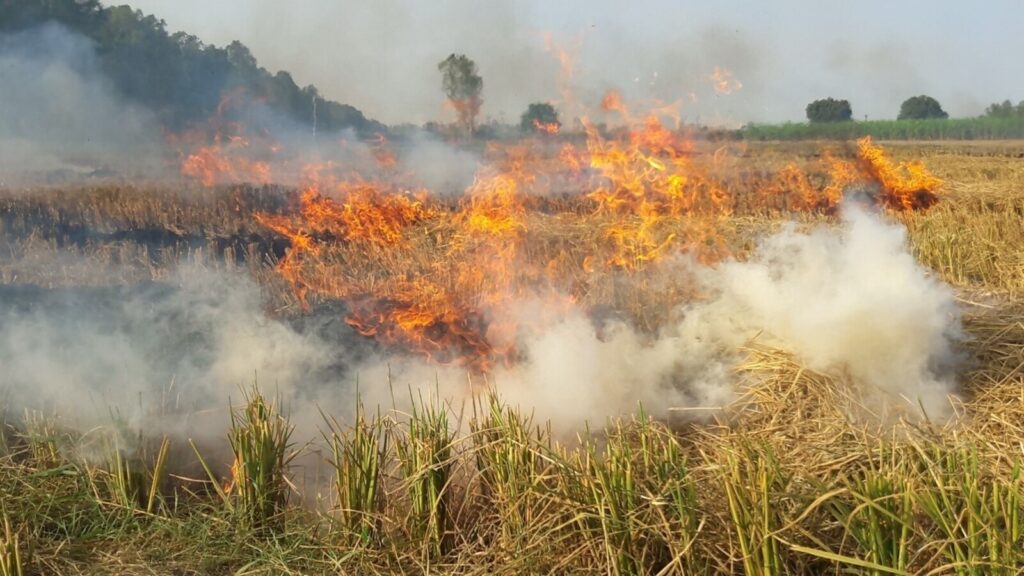The seeds of Delhi’s air emergency every winter are sown in the fields of Punjab during the monsoon. This year, however, there appears to be a silver lining in the dark plumes of smoke that envelop the Capital come November. For the first time, close to half the total area under paddy cultivation in Punjab has been sown with PR-126, a variety of the crop that matures faster and leaves behind less stubble. In a state where around 80% of the summer crop is usually paddy, this has raised hopes that the additional time between the summer and winter crop sowing will stop farmers from setting their fields ablaze to get rid of stubble. Typically, farmers in Punjab use the higher-yielding but slow-to-mature Pusa-44 variety, which produces roughly 15% more stubble and takes at least 35 days longer than PR-126. This means that only a short window is left for cultivators to clear their fields, prompting them to set the stubble on fire.
The roots of stubble burning – which pushes Delhi’s already bad air into the severe category, especially when it coincides with the Diwali season, and sluggish pre-winter air conditions – lies in a complex web of reasons linked to the (relatively) large size of landholdings of farmers, the (consequent) high level of mechanisation, and a 2009 water conservation law that shortened the harvest window. Add administrative laxity, short-term decision making, and pointed resistance from some cultivators to move to less polluting methods due to concerns over profitability, and you have a noxious mix that has made holistic and scientific plans to fight the winter pollution near impossible.
The success of PR-126 represents a break in that trend. Though it is important to note that this achievement was largely an accident – due to floods in July, the crop was washed away and farmers were left with no option but to resow the short-duration variety – and not administrative zeal, such advances need to be safeguarded and promoted. It can wean farmers away from more polluting and water-guzzling varieties. The government needs to build on this good beginning with administrative and financial support and ensure that the interests of other commercial groups – already paddy shelling mills and miller associations are complaining about the potentially lower yield – are not allowed to undercut the fight against pollution. The country needs both political will and scientific zeal in fighting against a menace that is not only a health hazard but also an economic drag.
Experience unrestricted digital access with HT Premium
Explore amazing offers on HT + Economist


